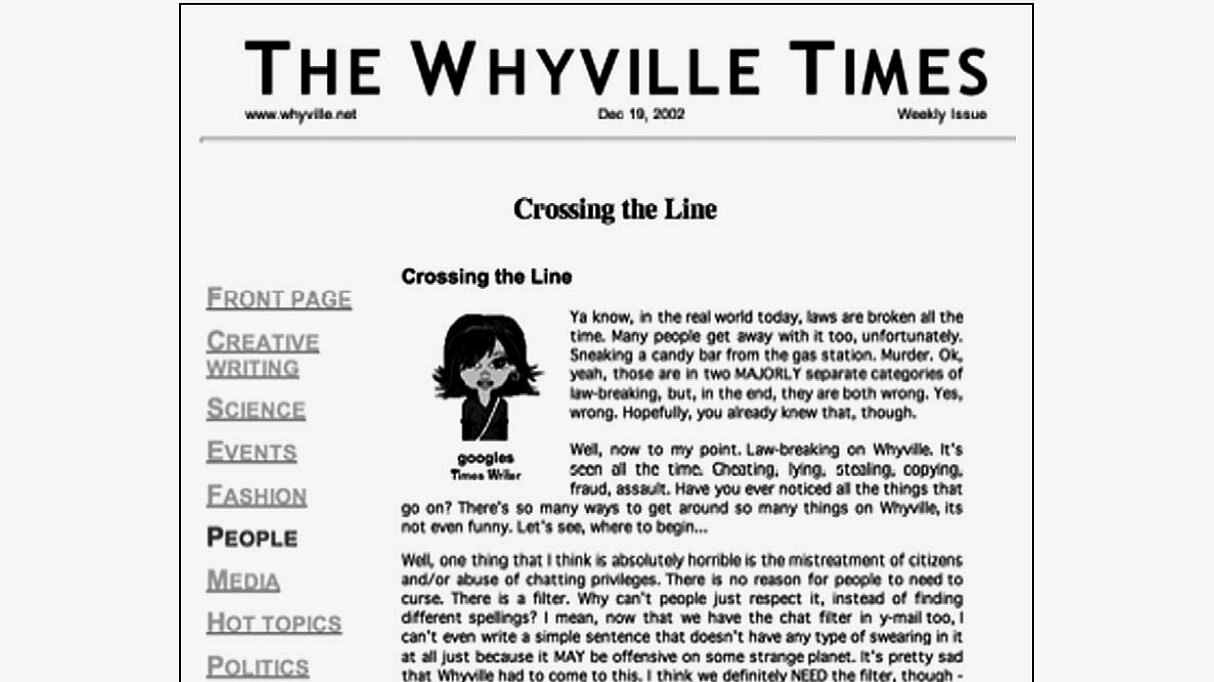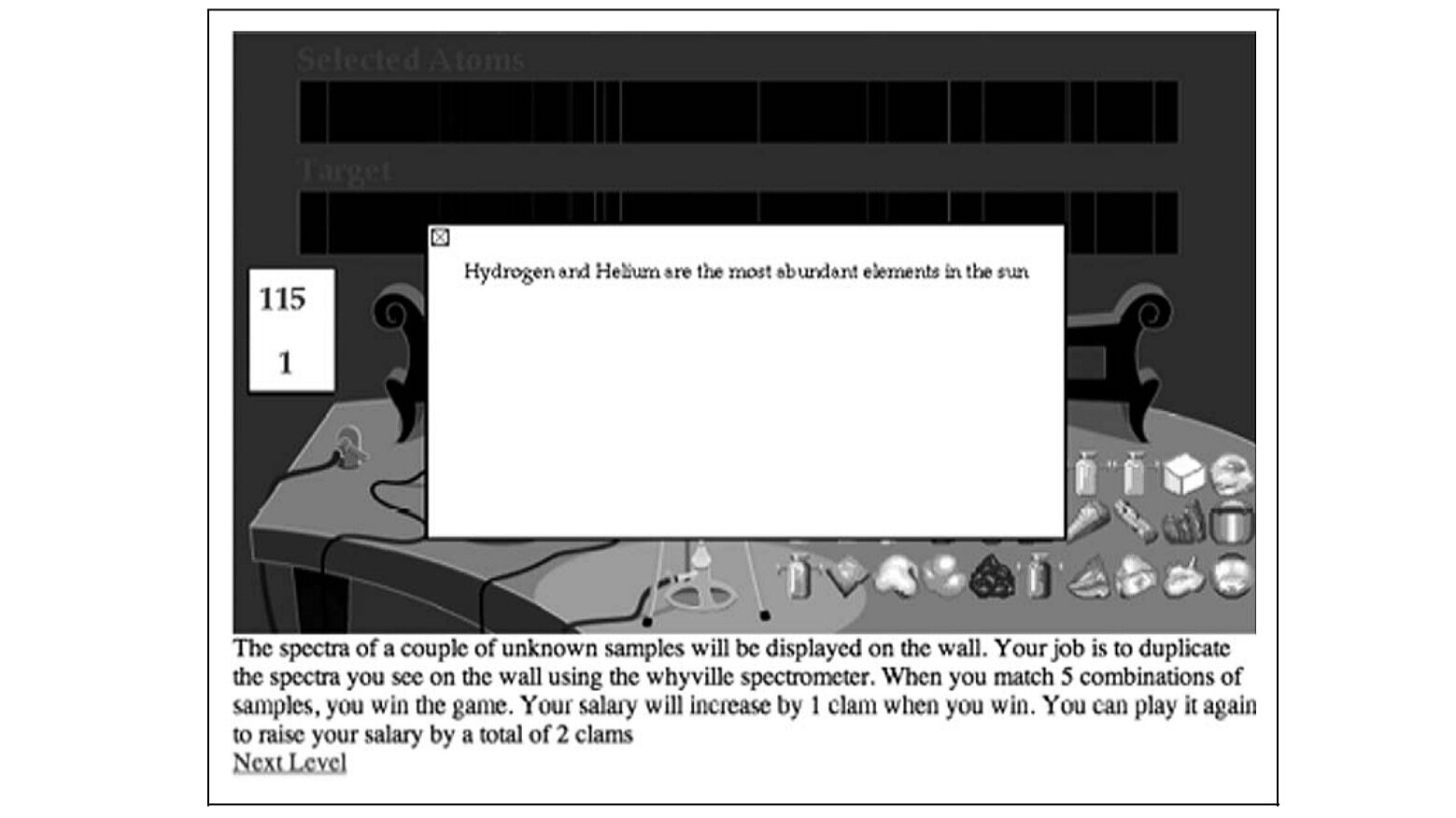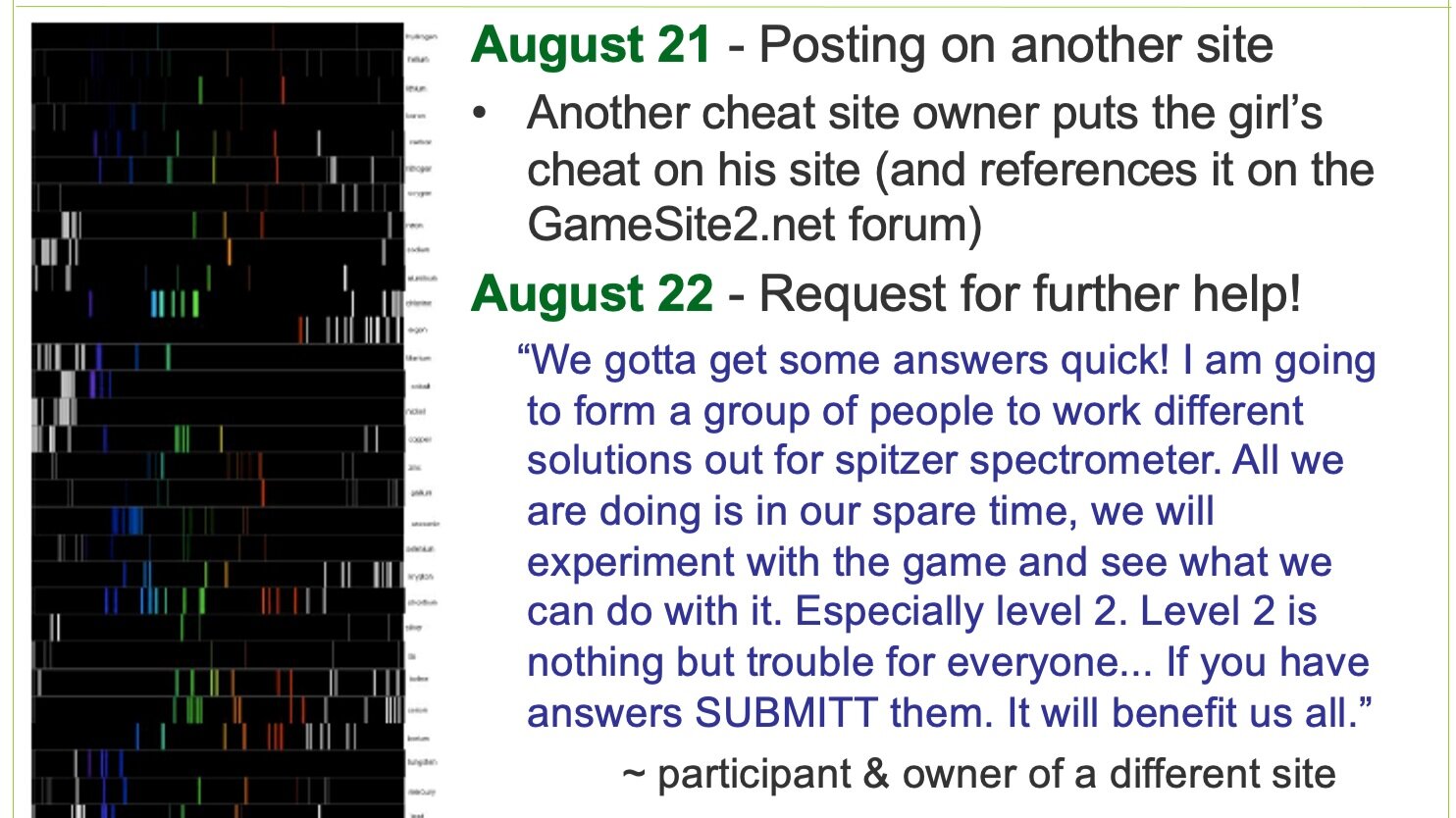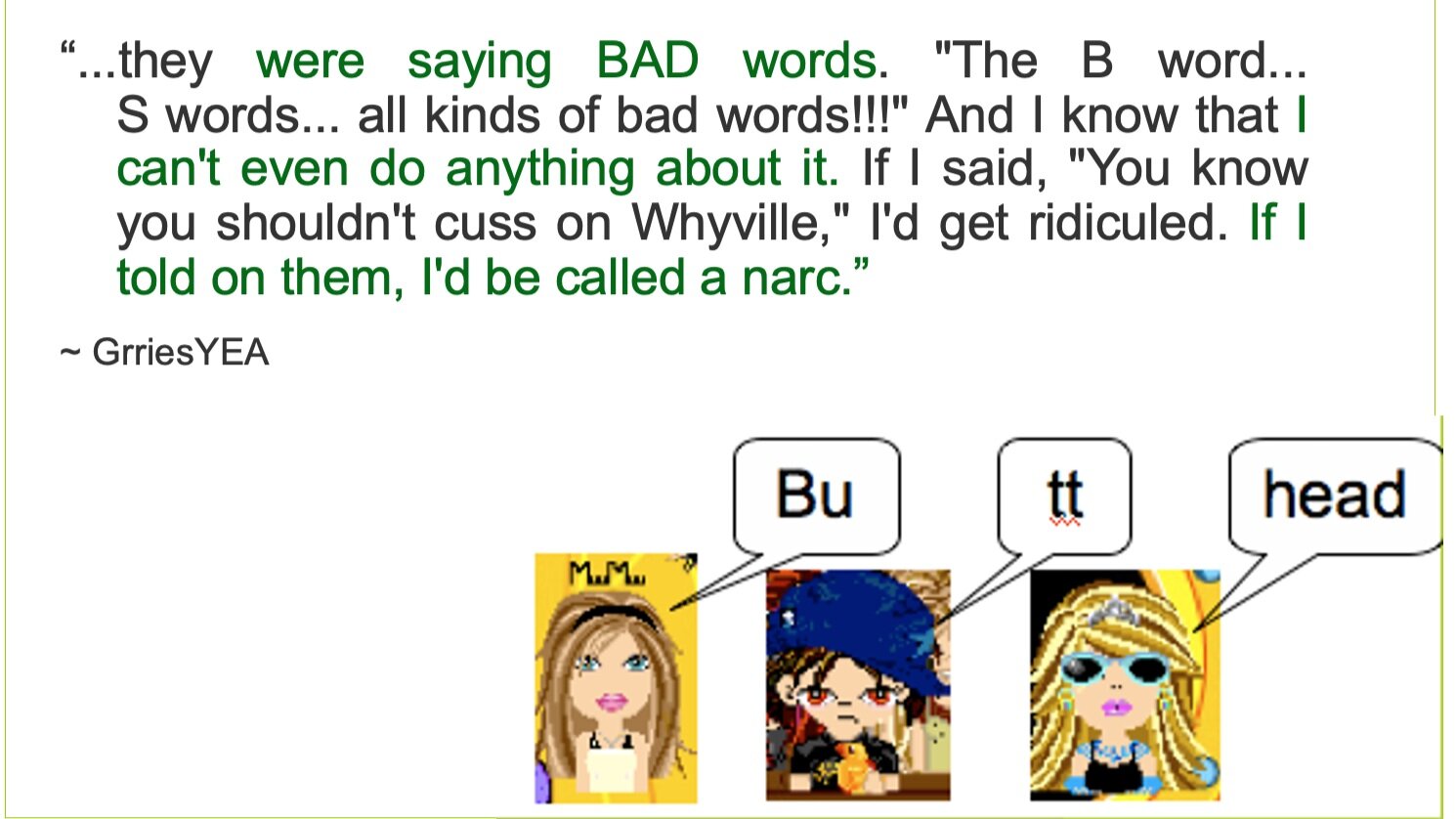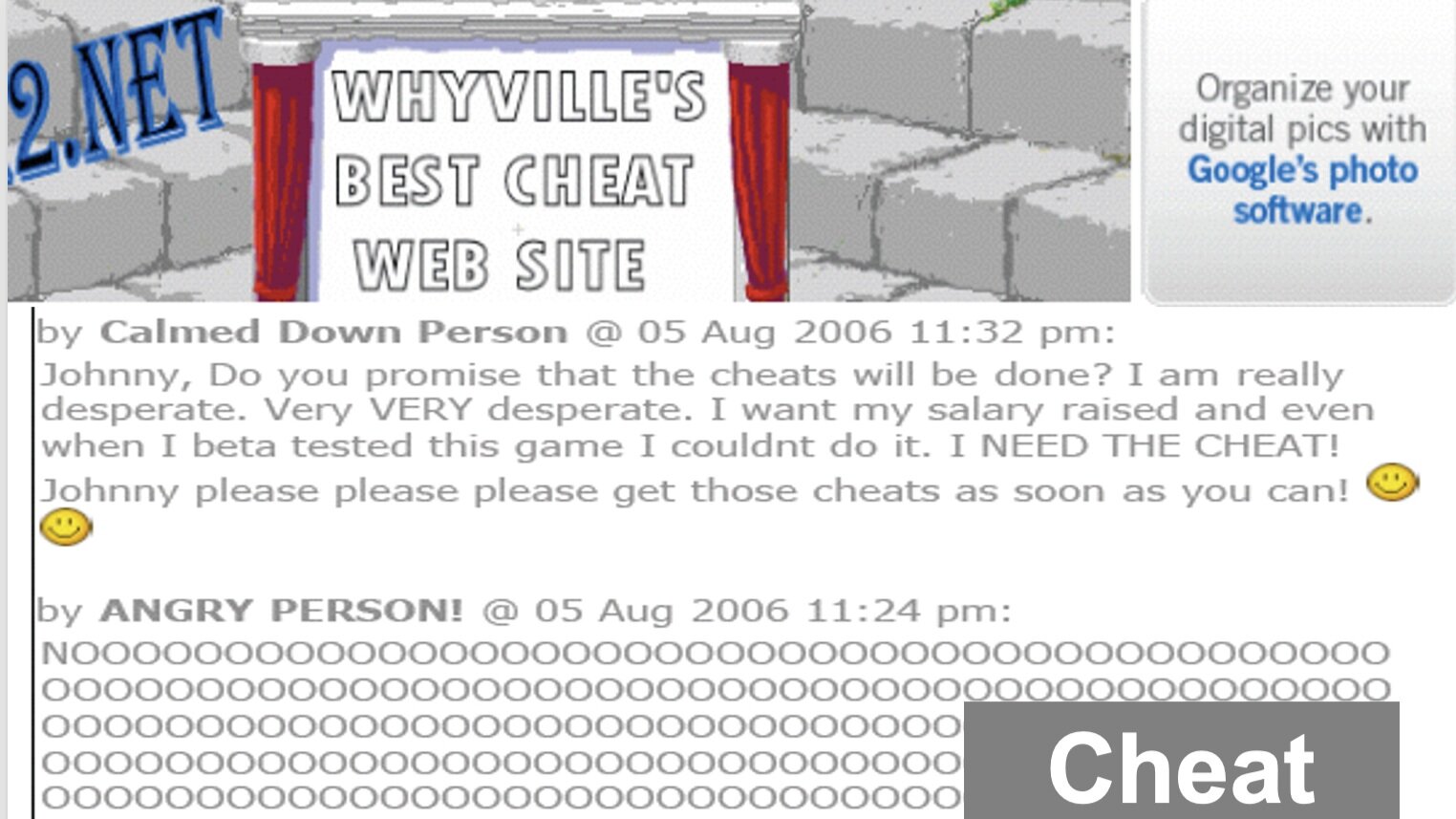Ethical Play
Cheating practices and their associated cheat sites are immensely popular in virtual worlds and gaming communities. Most commercial games have large fan communities that sprout numerous fan sites, among them cheat sites where players post explanations of how to complete various games, hints for how things work, and even discovered or manufactured shortcuts through games. Among players there is great variety on what counts as cheating, what the repercussions are, and how and when one should use cheats. We have studied the development of collaborative cheats and investigate how cheating practices change in virtual worlds over the course of a decade.
Contributors
Deborah Fields, Estee Ellis
Related Research
Kafai, Y. B. & Fields, D. A. (2018). The Ethics of play and participation in a tween virtual world: Continuity and change in cheating practices and perspectives in the Whyville Community. Cognitive Development, 49, 33-42. Link to PDF
Fields, D. A. & Kafai, Y. B. (2010). Stealing from Grandma or Generating Cultural Knowledge? Contestations and Effects of Cheating in Whyville. Games and Culture, 5(1), 64-87. Link to PDF
Kafai, Y. B. & Fields, D. A. (2009). Cheating in Virtual Worlds: Transgressive Designs for Learning. On the Horizon, 17(1), 12-20. Link to PDF
Fields, D. A. & Kafai, Y. B. (2007). Stealing from Grandma or generating knowledge: Contestations and effects of cheats in a tween virtual world. In Akira Baba (Ed.), Situated Play: Proceedings of the Third International Conference of the Digital Games Research Association (DiGRA) (pp. 194-202). Tokyo, Japan: The University of Tokyo. Link to PDF
Fields, D. A. & Kafai, Y. B. (2007). Illegitimate Practices as Legitimate Participation: Game Cheat Sites in a Teen Virtual Community. In C. Chinn, G. Erkins, and S. Puntambekar, (Eds.) Proceedings of the 7th Conference of Computer Supported Collaborative Learning (pp. 196-205). New Brunswick, NJ: International Society of the Learning Sciences. Link to PDF
Kafai, Y. B., Nixon, A. S. & Burnam, B. (2007). Digital Dilemmas: How Elementary Pre-service Teachers Reason about Students’ Appropriate Computer and Internet Use. Journal of Technology and Teacher Education, 15(3), 409-424.
Burnam, B. & Kafai, Y. B. (2001). Computers and ethics: Children’s moral reasoning about computer and Internet uses. Journal of Educational Computing Research, 25(2), 111–127.
